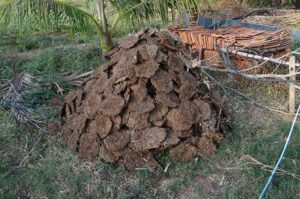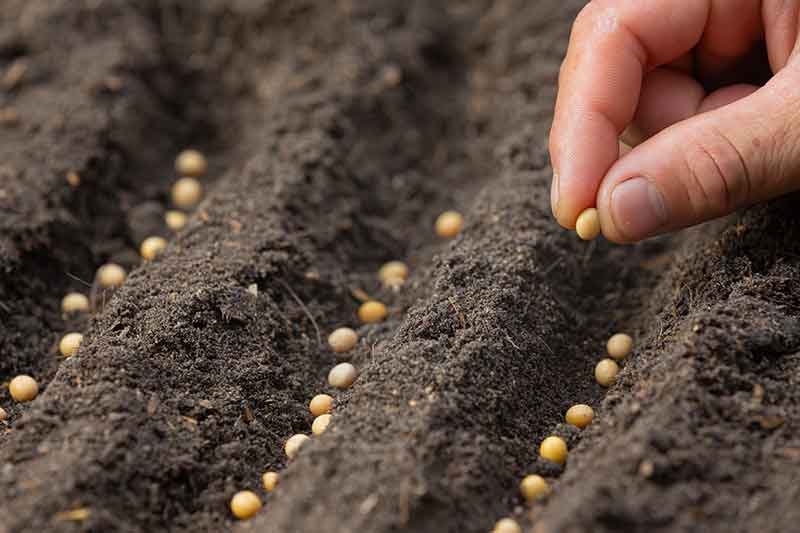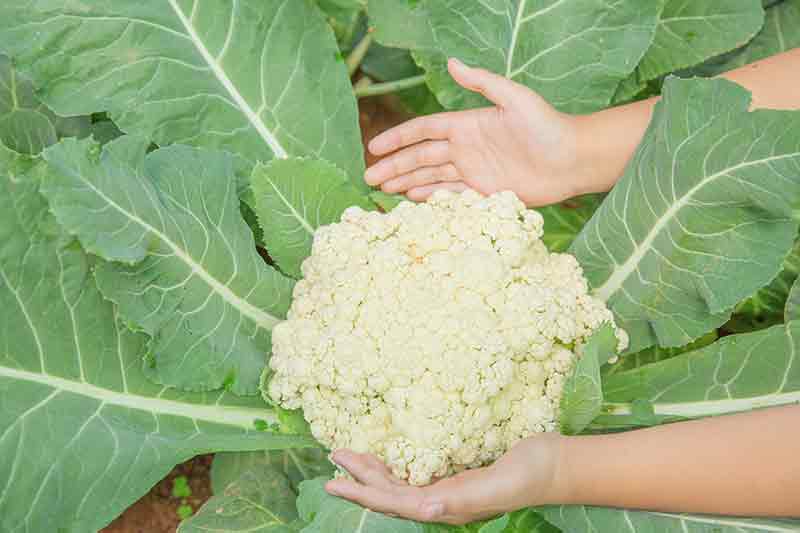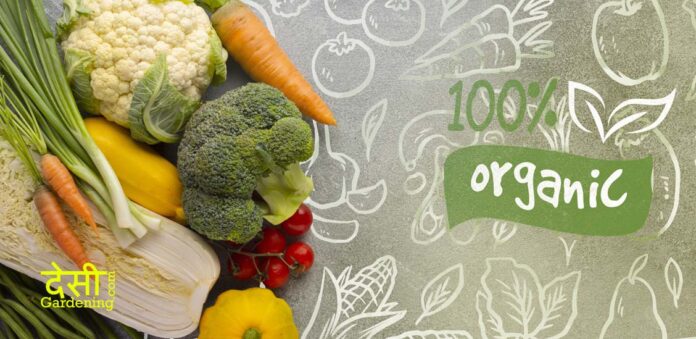Namaskar Desi Gardeners. The Meaning of Organic Farming sounds like a smart new term but actually, it has been in India for thousands of years! In fact, this is how we have been doing our farming and growing our food for generations.

Today, by the Introduction of Organic Farming, we mean farming or growing plants –
- Using only naturally found things
- Grow without using any chemicals
- Less waste
- Using more natural seeds and less hybridized ones
- Giving back to nature and leaving her undisturbed
If you look back, even fifty years ago in India, farmers were still practicing farming in the traditional way. The foreign companies poured in with more effective hybrid seeds and chemical fertilizers, to increase growth and harvest. While it gave a short-term profit, we lost in the long run.
Anyway, the best thing is that we have become aware before it is too late.
Here are some Importance of Organic Farming tips for you that I apply in my garden. This will help you make your garden better. To tell the truth, it is not possible for me to go 100% organic, but I try to keep it as much as possible. You can apply these tips for growing flowers, fruits, herbs or any other plant.
Simple and Smart Tips To Start Organic Farming At Home
- It always starts with good fertile pest-free soil. To make your soil fertile, apply cow dung manure. Fortunately in India, we have no dearth of cows and Desi cow’s manure is the best. It has been used in India for some time. But do not put cow dung directly. It should be dried and composted for a long time unless ready.

- Apply any compost, vermicompost or leaf compost. These are all-natural and will add benefits to the soil. Good microbes will thrive in the soil and will also help your plants grow well.
- To protect the soil and plants from pests, go through the soil before potting. Remove any dead leaves, twigs, and roots. Decaying matter attracts insects and will harm your plants. Spread your soil well and keep in sunlight for two weeks. This will also finish off pests and their eggs if present.
- A must for organic farming, add neem cake powder to the soil. This is one of the best pesticides and insecticides for your plants. Neem cake powder is fortunately easily available to Indian gardeners at a very affordable price. Neem cake also has a lot of nutrients and acts as a slow-release fertilizer.
- Add one teaspoon of edible limestone (chuna, the one we put in paan) while preparing the soil. This kills the pests and adds calcium to the soil. It also balances the soil when needed. (Do not use for succulents or plants like azalea which require acidic soil).
- Keep your garden or farm very clean and organized. Wipe off all fallen leaves and flowers and put in the composter. The cleaner it is, the less insects will disturb you.

Snails And Slugs Munching Away Your Leaves?
- Bring more birds. Leave a place in your garden or farm to attract birds. Leave some water and seeds. The more birds come, they will prey on the pests and insects. In my garden, I have a Greater Coucal come and eat away all the snails and slugs saving me from a ton of worry. I get visits from Tuntuni (Indian Tailor Bird) who come every day and feed away the mosquitoes and mealy bugs.
- Keep sick plants away or prevent those from touching the healthy ones. That way you can reduce the use of pesticides even if you have to.
- Spray on your plants natural pesticides like haldi powder dissolved in water, baking soda, borax powder, clove oil, wood ash and tulsi oil. The best pest control for organic farming is using neem oil. Use neem oil as a spray regularly.
- Use cocopeat to the soil. This will help in drainage and make the soil better. Cocopeat is powdered coconut coir which is used very commonly for growing plants in pots. It also releases nutrients for the plant.

Flowering Perennial Plants You Can Easily Grow in Indian Garden
- Watering is also important. Most water supplies are full of chlorine which is not so good for plants. If you can keep this water for 24 – 48 hours before using it.
- Do not use any chemical fertilizer or pesticide until and unless it is an emergency. Just like we go for allopathic medicines when we are really sick and there is no other way.
- There are many types of fertilizer and combinations that can be used to fulfil all food requirements. Things like mustard cake powder, groundnut powder, wood ash, bone meal, horn meal and many more. See all about fertilizers here.
- It is also possible to make your own organic farming pesticides at home with a little knowledge.
- Talk to other gardeners. Talk to a farmer. They will tell you many hacks and secrets.
- Use mulch to preserve water and discourage pests. A simple thing like a pebble can help you a lot. All about pebbles and stones here.
- Use terracotta for your garden. Pots made of terracotta are the most eco-friendly. Plants thrive in it, and it is best for every season. After use, it is easily biodegradable as it is itself made of soil.
- If you are growing crops, plant in rotations. For example, after harvest, growing plants like cowpeas will increase the nitrogen content of the soil and make it ready for the next season.
- Understand the importance of natives. Plant native. Go for local. Buy native seeds. Unless you really need to get hybrid seeds, always prefer native seeds and plants. For example, desi tomatoes are smaller than the hybrid ones. But when it comes to taste, desi ones are healthier and taste way better.
- It is very important for us to preserve the native plants and seeds. Without it, we are never truly organic or sustainable. Native plants have been part of the soil for thousands of years and are part of the ecosystem. Local birds and other life depend on it. If you really want to care about Benefits Organic Farming, talk to the local farmers about the desi seeds and plants and know more about those.
Brightest Yellow Flowers to Grow in an Indian Garden
This post contains affiliate links. If you use these links to buy something we may earn a commission. Thanks.
View this post on Instagram





























